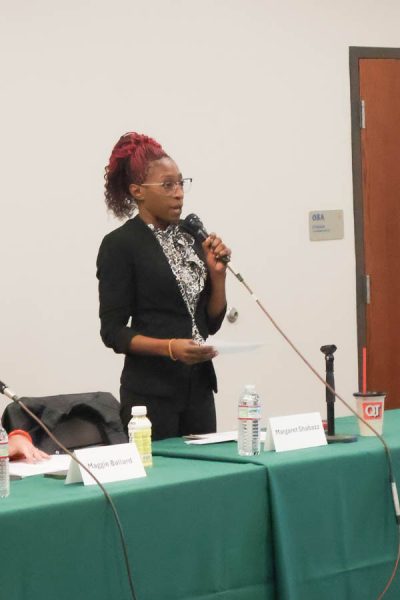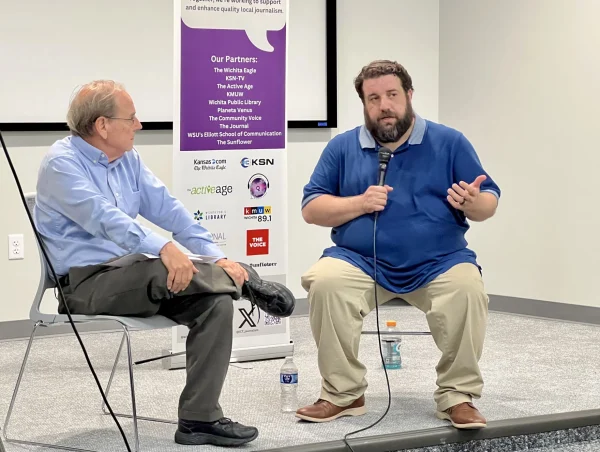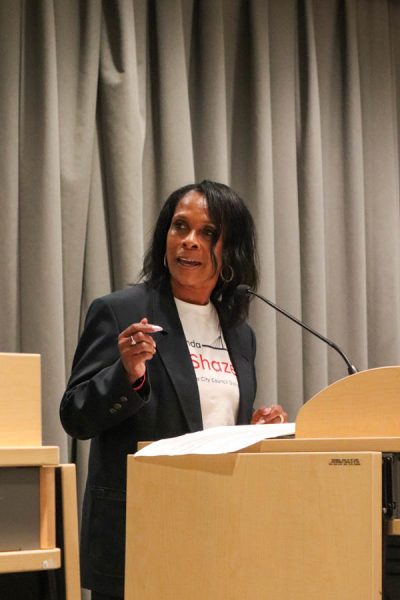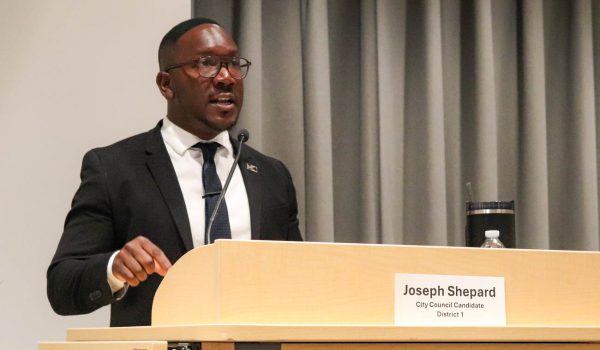Tilford coordinator to promote diversity and multiculturalism
Jean Griffith is putting ideas together in more than one way.
She became the first Tilford coordinator, a new position at Wichita State, on August 5. This is her sixth year at WSU.
Tilford is an effort of Kansas Board of Regents institutions to promote diversity, multiculturalism and inclusion on university campuses.
“It’s what I teach. It’s important in my personal life,” Griffith said. “I’m passionate about promoting diversity on campus and elsewhere. It’s my research field.”
She will retain her part-time responsibilities as an associate professor of English. Her specialty is American literature with an emphasis of multiculturalism, including literature by African Americans, Native Americans and first-generation immigrants to America.
“It’s a field that investigates race and ethnicity through the eyes of those in the majority. Those are people of European descent,” Griffith said. “I study white people as a researcher.”
She earned a Ph.D. from Texas A&M in College Station, Texas, with a graduate certificate in women’s studies and an emphasis on race in American culture from 1890-1945. She earned an undergraduate degree in English with a minor in women’s studies from Boston College and a master’s degree in English from Temple University.
“I have always been an avid student of African-American literature and culture, but also Native-American literature and culture,” Griffith said. “I had that interest as a student and also a background in women’s studies.”
Her undergraduate degree includes a minor in women’s studies from Boston College and she has a graduate certificate in women’s studies along with her Master’s Degree from Temple University. She studied racism within the American feminist movement.
The title of Griffith’s doctoral dissertation is “Reading White Space.” She revised the dissertation into a book titled “The Color of Democracy in Women’s Regional Writing” in 2009.
Griffith and her husband adopted a 17-month-old Haitian orphan. She is also the director of the non-profit organization, Haitian Families First.
All this experience and education led her to seek the coordinator position while she served as co-chair in the faculty representative group in the program.
It was also part of the reason she was hired for the job, Associate Provost Linnea GlenMaye said.
“We were looking for someone who had the experience and knowledge (and) the commitment to the Tilford process and the ability to coordinate these efforts,” she said.
GlenMaye said Griffith has the scholarly background necessary to be a good coordinator.
“She’s focused on diversity issues. She was already engaged,” she said.
Griffith said her first order of business as coordinator is to talk to a lot of people about collaboration regarding multiculturalism at WSU.
“Whose needs aren’t being addressed? What issues are not being spoken and how can Tilford facilitate those conversations? Whose voices aren’t being heard?” Griffith said.
She said she will meet faculty, staff and student representatives who fall within the Tilford guidelines to discuss how to blur and eliminate the lines between disabled, international, minority and other campus groups. She had been co-chair of the faculty representatives when the program was in the Office of Multicultural Affairs, before it moved to the provost’s office.
“I’m going to be there to support those subgroups,” Griffith said. “We are advocates for marginalized people on the one hand, but we also want to foster an environment where everyone comes together, that is inclusive and that facilitates cross-border conversations for everyone. We want to create a campus environment that is inclusive and where cross-border understanding can take place. We’re all in this together.”
She is keeping an open mind about how this advocacy can be accomplished because, she said, everyone has a race, a gender and a sexual orientation.
Griffith said the program offers grants to allow faculty members to develop or revise an existing course to augment its diversity component. She intends for the program to increase students’ job prospects after graduation and to enhance their personal lives due to greater cross-cultural contact and awareness.
“Students need to be globally competent, which is a big deal today,” Griffith said. “Everybody needs to understand that.”







